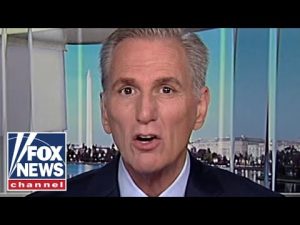Dave Rubin’s latest Direct Message segment put a spotlight on a moment many in our movement have been waiting for: Bill Maher publicly warning Democrats that their flirtation with radical ideas has real political consequences. Rubin shared a clip from Real Time where Maher bluntly criticized the party’s new leftward faces and left the studio audience with a stunned silence as guests Mark Cuban and Andrew Ross Sorkin were forced to confront uncomfortable realities. The exchange isn’t theater — it’s a wake-up call captured on national television that conservative Americans should watch closely.
Maher’s critique landed hard because it named names and painted a clear picture: he pointed to Zohran Mamdani as emblematic of a Democratic faction that prizes messaging over governing, and the panel — including Cuban and Sorkin — visibly recoiled as the implications were explained. Cuban admitted that young people are souring on capitalism, blaming social media rage and poor messaging, while Sorkin warned of a financial literacy gap that makes utopian promises sound plausible. Those moments exposed an unsettling truth for Democrats: charisma and viral slogans cannot paper over fiscal reality.
Who is at the center of this debate? Zohran Mamdani, a rising Democratic figure who’s embraced democratic socialism, has proposed bold policies — fare-free transit pilots, higher taxes on the wealthy, and expanded social programs — that excite a certain base but worry fiscal conservatives and business leaders alike. Business reporting has highlighted how his proposals would reshape New York’s budget priorities and set off alarms among corporate and financial communities that worry about an exodus of investment. For everyday Americans who pay the bills, that’s not abstract theory — it’s a potential hit to jobs, services, and the city’s competitiveness.
Maher didn’t mince words when he called these positions radical and warned Democrats they could be politically poisoned by them, a concern echoed in conservative media and even noted by other mainstream commentators. When a self-described liberal like Maher publicly panics about the direction of the Democratic Party, conservatives should stop patting ourselves on the back and instead recognize an opening to make a clear, principled case for free enterprise and accountable governance. Democrats can no longer hide behind brand names and celebrity endorsements when their policies would bankrupt cities and punish small businesses.
This is a chance for Republicans and conservative voices to push a straightforward contrast: sound economics and personal responsibility versus social experiments that promise freebies and deliver fiscal ruin. Hardworking Americans know that prosperity comes from enterprise, not handouts, and every sensible voter sees through the veneer of viral politicians who trade substance for slogans. We must turn Maher’s warning into a sustained message: defend capitalism, explain economics simply, and expose the consequences of socialist policies in plain terms.
Bill Maher’s segment — recently aired and widely circulated — proves that even some on the cultural left are alarmed, and that moment of truth will reverberate through the next election cycles if Democrats continue down this path. Conservatives should use it to rally voters around common-sense solutions that protect livelihoods, secure borders, and restore fiscal sanity. If Democrats persist in selling utopia at the expense of reality, Maher’s warning shows who will ultimately pay the price at the ballot box.







